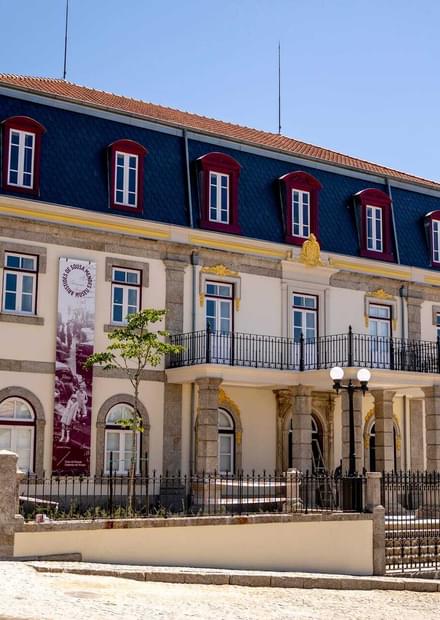On October 19th 2021, Aristides de Sousa Mendes was given the honours of remaining in the National Pantheon by the President of the Portuguese Republic, Marcelo Rebelo de Sousa. A truly deserved recognition to a man who saved thousands of lives from the certain death in the Holocaust.
The name of Portugal's former consul in Bordeaux remains among the nation's most distinguished, in a tomb without a body. The remains are kept in Sousa Mendes' birthplace, Cabanas de Viriato, in the municipality of Viseu.
Aristides de Sousa Mendes do Amaral e Abranches was born on 19 July 1885 in Cabanas de Viriato, Carregal do Sal, Viseu. He studied Law at the University of Coimbra with his twin brother César. After graduating in 1907, at the age of 22, he did his traineeship as a lawyer. In 1908 he married his cousin Angelina, with whom he would have 14 children. In 1910, Aristides and César entered the diplomatic service. Aristides served as Career Consul in British Guiana, Zanzibar, Brazil (Curitiba and Porto Alegre), the USA (San Francisco and Boston), Spain (Vigo), Luxembourg, Belgium and, finally, France (Bordeaux). He died in April 1954 at the Franciscan Hospital for the Poor in Lisbon in misery.
In 1966, the Holocaust Memorial in Jerusalem honoured him by awarding him the title of 'Righteous Among the Nations'.
In Portugal, in April 1988, the Assembly of the Republic unanimously decreed the posthumous reinstatement of the former consul in Bordeaux in his diplomatic career, also recognising the right to compensation for his direct heirs.
Aristides was also posthumously honoured in 1986 with the rank of Officer of the Order of Liberty and in 1995 with the Grand Cross of the Order of Christ, both by President Mário Soares. More recently in 2016 with the Grand Cross of the Order of Liberty by Marcelo Rebelo de Sousa.
The whole country bows before the greatness of a man who stood on the right side of History. Because it takes huge courage to do the right thing.
National Pantheon
The National Pantheon, also known as Santa Engrácia Church, stands out as a unique example of the Baroque style in Portugal, beautifully placed in front of the Tagus, in Lisbon. Its terrace offers an unrivalled view over both the city and the river.
The tomb rooms house the most outstanding leading characters of Portuguese political and cultural life, namely: Presidents of the Republic Manuel de Arriaga, Teófilo Braga, Sidónio Pais and Óscar Carmona, the writers Almeida Garrett, Aquilino Ribeiro, Guerra Junqueiro, João de Deus and Sophia de Mello Breyner Andresen, the fado singer Amália Rodrigues, the footballer Eusébio da Silva Ferreira and Marshal Humberto Delgado.
The National Pantheon's mission is to honour and promote the lives and works of the renowned personalities it houses.







